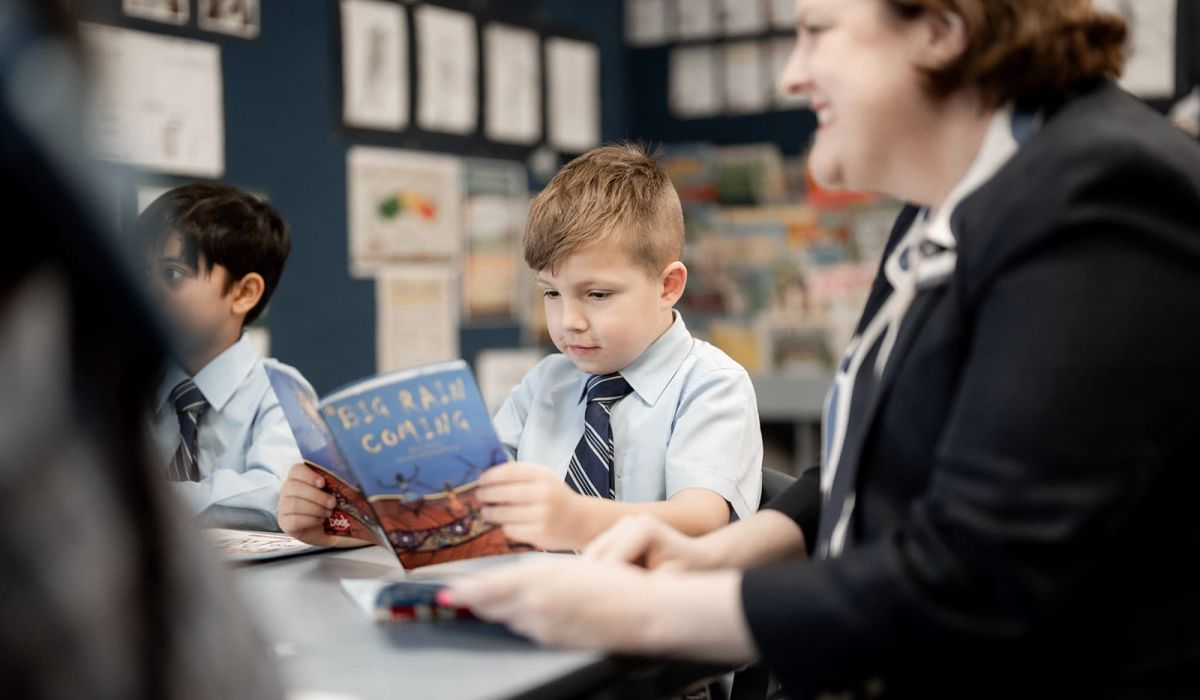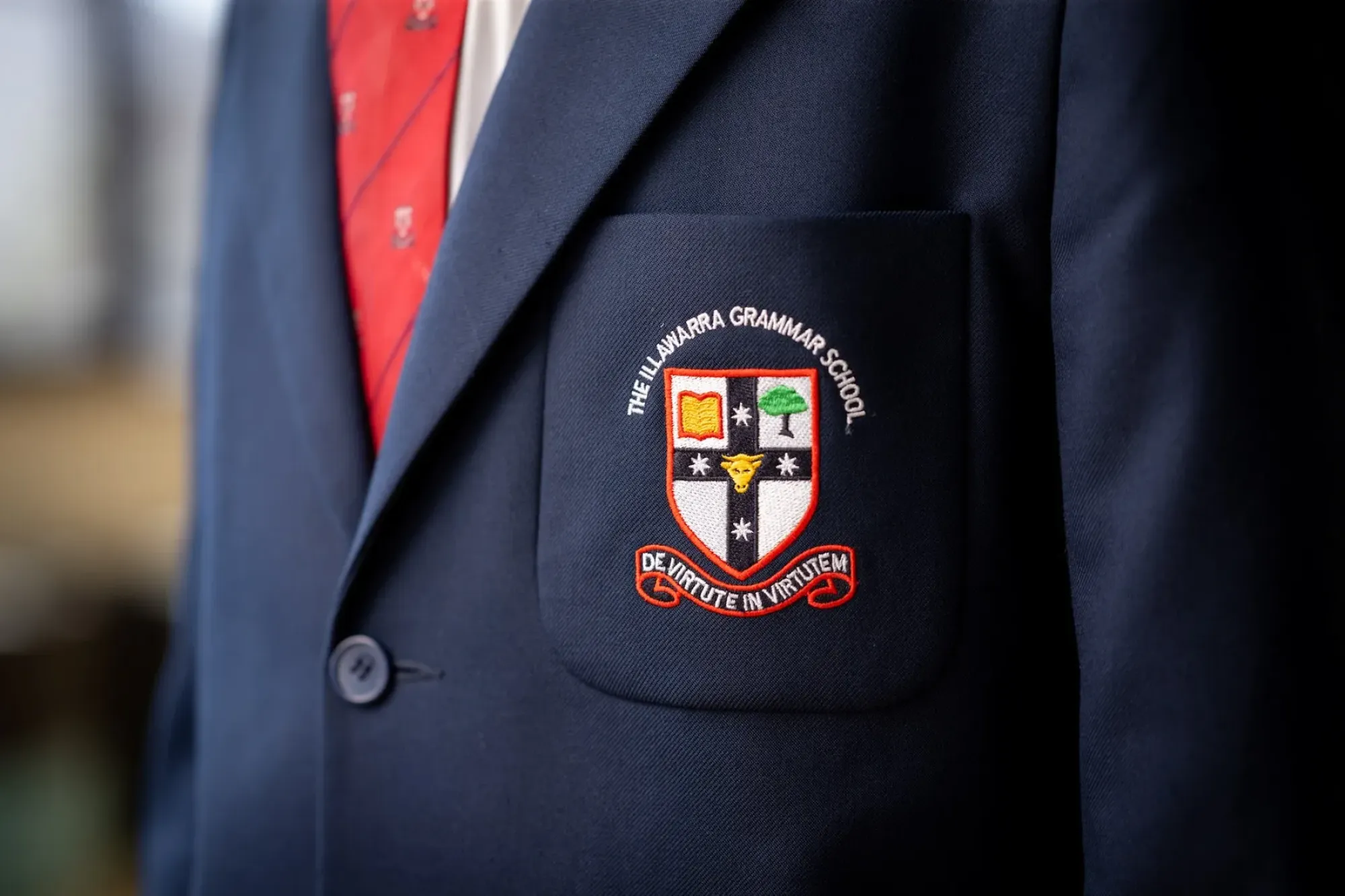
How to Help Your Child with Letters, Sounds and Numbers
Authored by Ms Geneva Clayton – Head of Junior School
Learning letters, sounds and numbers is an exciting milestone in your child’s early education journey. At The Illawarra Grammar School, we aim to make this process engaging and enjoyable, laying the foundation for reading, writing and numeracy success. Home support and encouragement by families allows students to develop early years skills.
The following are helpful ways that you can help your child as they prepare for Kindergarten.
1. Make learning fun! Introducing early numeracy and literacy concepts
Learning through fun and engaging activities and games can assist your child in developing early numeracy and literacy skills. Your child’s Kindergarten teacher will provide many resources and guidance on how to best support their learning. At Illawarra Grammar, we provide many workshops and support to ensure parents feel supported in assisting their child in building these skills. The use of the program Sound Waves ensures that our students receive an excellent foundation in phonemic and phonological awareness. Additionally, decodable books are a key resource, helping students connect sounds to written words through structured and sequential learning.
Some suggested games that can be helpful
- Use magnetic letters and numbers on the fridge to spell simple words or practice counting.
- Play “I Spy” using letter sounds (e.g., “I spy something that starts with /b/.”) or numbers (e.g., “I spy the number 3.”).
- Create letter name and sound based play areas where your child can collate items that match the focused letter (e.g. if the focus is the letter ‘b’ find as many associated objects like a bag, banana, basket, bottle, box)
- Sing Songs and Nursery Rhymes: Chanting rhymes and songs helps to build an understanding of rhyme and rhythm. Nursery rhymes such as Incy Wincy Spider, Humpty Dumpty, Mary Had a Little Lamb, Jack and Jill, Row Row Row Your Boat are great examples of how phonemic awareness and numeracy can be introduced to young children.
2. Recognising letters and numbers
Children love to recognise letters and numbers. This can begin by pointing these out in the environment. Encourage your child to notice letters and numbers in their homes and when out and about. Pointing out letter names helps to build this knowledge. Giving some direction i.e. ‘Can you see the W for Westfield?’ or ‘Can you turn to page 10?’ reinforces this knowledge, building confidence in your child.
There are many fantastic alphabet and number books that you can share with your child also. These can be borrowed from your local library and purchased at your local bookstore.
3. Understanding Phonemic Awareness
Phonemic awareness is the ability to hear and manipulate units of sounds in spoken language. It refers to the ability to recognise that words are made up of a variety of sound units, for example single sounds (phonemes) and blends. This knowledge is essential in order to progress in your child’s reading capacity. Identifying sounds in words is what Kindergarten teachers will focus on specifically as students enter school.
Helping children identify sounds in words starts with initial sounds – ‘What sound can you hear at the start of ‘cat’ /c/.
Once children master initial sounds, you can then explore end sounds – ‘what sound can you hear at the end of ‘cat’ /t/.
Children will then move onto segmenting and blending sounds. This is when you will break down the sounds in the word – what sounds can you hear in ‘cat’. /c/ /a/ /t/. Ask your child to blend the sounds together.
4. Support Writing and Number Practice
Writing reinforces letter recognition, sound associations and number understanding. We want our students to love writing and encourage them to explore their drawings, scribbles and then eventually make intentional letter and number representations. This initial form of communication is powerful and it is highly encouraged to discuss their markings to help make meaning and reinforce their communication skills. Letter and number development will continue as they commence Kindergarten.
5. Developing Literacy and Numeracy skills is empowering!
Learning letters, sounds and numbers takes time, and every child progresses at their own pace. You will find that the Kindergarten year will be an incredible year of growth and development. Continue to encourage your child and please don’t compare them to their peers. Making those important connections will take place when your child is ready. Be guided by your child’s classroom teacher and know that support is always available.
Your child’s classroom teacher will be in regular contact with you to share what they are learning in class and how you can reinforce it at home. Learning Conversations, parent-teacher interviews, and Celebrations of Learning provide frequent opportunities to speak with your child’s classroom teacher and discuss their progress.
Many workshops are offered, including the K-2 Literacy and Numeracy Evening, aimed at assisting parents in helping their children at home. The Illawarra Grammar School team is here to support you and your child at every stage of development.
Learn more about Kindergarten at Illawarra Grammar.

